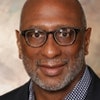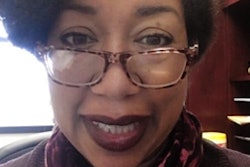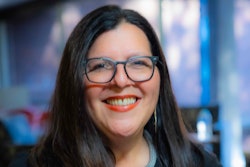Dear Black women in higher education,
2023 should have been a wake-up call to our community, yet the red flags persist. The untimely deaths of two Black women presidents, JoAnne A. Epps of Temple University and Dr. Orinthia T. Montague of Volunteer State Community College, was a signal to all other Black women in higher education. Now, the death of Dr. Antoinette “Bonnie” Candia-Bailey rings the alarm that our wellness must come first. We each have only so much time to do the good work, but work cannot be the totality of our lives. We must make room to live, laugh, and love ourselves and others each day as if it will be our last. As we navigate the treacherous waters of 2024, let us honor those we have lost by being mindful of the debilitating structures we are up against.  Dr. Danie Marshall
Dr. Danie Marshall
We haven’t gone past the third week of January, and we are witnessing another tragic death of a Black woman in higher education. Our hearts are heavy, and we equally seek to maintain a wellness practice to save ourselves as we aspire and climb upwards. Many of the factors impacting our well-being could be beyond our control, yet we must take hold of how we care for ourselves in a methodological and incremental manner. We pose a question that one of the healers in Toni Cade Bambara’s (1980) Salt Eaters proposes to the book's main character, “Are you sure, sweetheart, that you want to be well?” At this time of reflection and goodwill, we challenge every Black woman in higher education to take a moment and step back from the hustle and grind of deadlines, budgets, and things we “must do” for others and question, when was the last time we prioritized our health and wellness?
We understand the importance of nails, hair, and wardrobe in how we are perceived and equally, how we feel when we enter the board- and classroom, but what are we doing to ensure our wellness mentally, spiritually, physically, emotionally, and even financially? Consider your position at your institution. Whether you are a researcher, professor, or president, when was the last time you felt stress in relation to your position? Some of us are the only people of color in our departments and find ourselves carrying the heavy load of doctoral students who want to work with us because they identify with some form of our many identities. How does it feel to have 15-20 graduate students under your helm and what impact does this have on your writing, research agenda, and wellness? Data from the 2023 American College President Study suggests that 12.5% of all college presidents are women of color and while they mostly reported having a strong support system to lean on, many of them felt that their institutions could have done a better job explaining the challenges facing their institutions (Melidona et al., 2023). They started these positions with high hopes but did not truly understand the barriers and challenges which lay ahead of them, which undoubtedly caused them to experience higher levels of stress. The pressures of leadership as a Black woman are daunting enough without adding a lack of full disclosure when taking on positions such as chairs, deans, and executive presidencies. We must consider the impact of stress and unwellness on our bodies.
The World Health Organization (WHO) defines stress as “a state of worry or mental tension caused by a difficult situation” (World Health Association, 2023). Black women as a whole can teach a masterclass on navigating “difficult situations,” but when it comes to discussing rest, saying “no”, and prioritizing wellness activities, we undoubtedly struggle. The effects of stress transcend our mental state and have a way of manifesting throughout our bodies. According to the American Psychology Association (APA), stress affects our muscles, specifically the neck and shoulder muscles, which can trigger headaches and pain throughout our backs and hips. Long-term stress affects our circulatory and cardiovascular system, leading to an increase in hypertension and consequently higher chances of heart attack and stroke. While there are many other effects of stress on the body, including hormonal changes, weight gain, and insomnia, it is important to remember that we do not have to live this way. We do not have to be martyrs in the name of academic institutions.  Dr. Nadrea R. Njoku
Dr. Nadrea R. Njoku
We challenge every one of you to create a plan, a wellness plan, that prioritizes your personal wellness. Moreover, for those in the community and on teams with Black women, we encourage you to support them to prioritize their health. To support you in this process, Dr. Marshall has created a resolution for each month that Black women in higher education can follow to center their wellness and well-being throughout 2024. This is something the Frederick D. Patterson team at the United Negro College Fund (UNCF) intends to do alongside you.





















